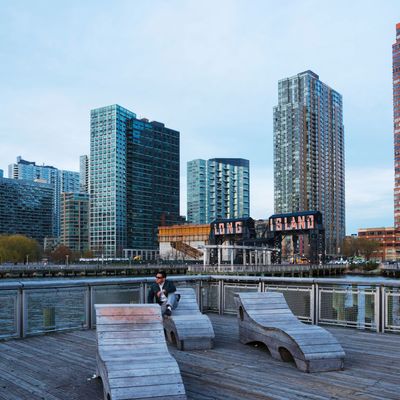
Citing “two people familiar with the company’s thinking,” the Washington Post reports that Amazon is reconsidering its commitment to locate a second headquarters in New York City because of rising political opposition to the subsidy deal set to bring them here. Or maybe not! The New York Times has “two people directly familiar with the company’s thinking” who say that the Post article about Amazon’s New York plans “had gone too far and Amazon had no plans to back out.”
While Governor Andrew Cuomo and Mayor Bill de Blasio have been enthusiastic cheerleaders for their own plan to bring Amazon to Queens with a $3 billion subsidy package, many other New York politicians have been strongly critical. Most ominously, Democrats in the state senate have sought to place an Amazon-deal critic on a board that would have the power to kill much of the subsidy package.
This leak about Amazon’s cold feet could just be a warning shot: “Don’t try to recut our incentive deal or we may walk away” is a message Amazon would surely like to send, whether or not it is actually willing to walk. But it’s also a reflection of a fundamental weakness of the deal to bring Amazon to New York: Neither party truly needs the other.
Unlike some other cities that wrote their HQ2 applications as part of a revitalization strategy, New York doesn’t need to be revitalized. Demand for all kinds of real estate is strong here, the job base is strong, and a strategy to subsidize a large new employer is likely to just bid up rents — for both office space and apartments — rather than raise existing residents’ standards of living.
“A Quinnipiac poll from December shows the New York public broadly favors Amazon coming to New York. But when asked about the prospect of paying them $3 billion to come, the response is much more closely divided: 46 percent in favor, 44 percent opposed. That’s not the dismal figure you might expect from the strongly negative reaction to the deal from the press, but it’s a figure that suggests Amazon can’t rely on a groundswell of public support to push politicians to subsidize them.”
As I wrote back in November, the best arguments for the Amazon subsidy deal were that the company would do two things other similar employers wouldn’t: It would site its large campus in Queens instead of Manhattan, allowing the city to develop a new outer-borough office core and better balance subway demand in and out of Manhattan; and it would conceivably form the nucleus of a high-technology cluster, adding yet one more industry whose firms consider New York a leading office destination.
Because of those benefits, I don’t think the Amazon proposal is quite as indefensible as a lot of people do. But a better geographic balance of office space within the city and a more leading position for New York in the tech industry are nice-to-haves, not necessities, and I don’t think they are worth $3 billion. As Amazon is learning, a lot of New York lawmakers feel that way, too.
I have seen people comment that Amazon held the HQ2 contest as an auction to bid up subsidies, which is surely true. I have also seen people say that Amazon made the same siting choices — one in Washington, where Amazon CEO Jeff Bezos owns a palatial home and a major newspaper; and another in New York, the capital of the world — that it would have made, regardless of the size of the subsidy offers. This, I don’t think is quite right. You can’t be a little bit pregnant, but as Amazon showed by selecting two winners in the HQ2 competition and then continuing to pursue smaller deals with other cities like Nashville, you can be a little bit of a second headquarters. And if the subsidies get trimmed, Amazon could trim its plans to grow in New York without dropping them altogether.
Amazon already has a substantial office in New York, and it will likely grow substantially, even without special subsidies for the company. Google is growing its presence in New York, with medium-range plans to have nearly as many employees here as Amazon’s proposed headquarters would contain, without a special subsidy package. But absent subsidies, Amazon may grow its New York employee base less than it has planned in the HQ2 vision, only putting employees here when there is a strong and specific business case for them to be here, taking account of the added costs that New York entails.
More importantly, without the Queens-specific subsidy package, it’s hard to see what’s in it for Amazon to go to Queens.
Amazon’s existing New York office is in Manhattan, and Google’s vast New York expansion is occurring in Manhattan, where the employees they are hiring likely prefer to work. Amazon would also have to worry that political objections to its Queens deal are not just about subsidies — objecting politicians also don’t like the proposed planning process that would allow Amazon to build its dream campus without having to please a bunch of busybodies on the City Council and on community boards.
If planning in Queens is going to become a pain, and with many of the subsidies associated with locating in Queens withdrawn, why not just take office space in Manhattan? There happen to be a whole bunch of large office towers in planning and construction right around Amazon’s existing headquarters on the west side of Manhattan.
So, we can’t assume Amazon will just come to Queens at any price. But that’s okay — Amazon doesn’t truly need to be there, and Queens doesn’t truly need to have Amazon there. A smaller (but still large!) Amazon expansion in Manhattan instead of Queens is an outcome everyone can live with. And that’s why it’s an outcome we’re likely to get.





























